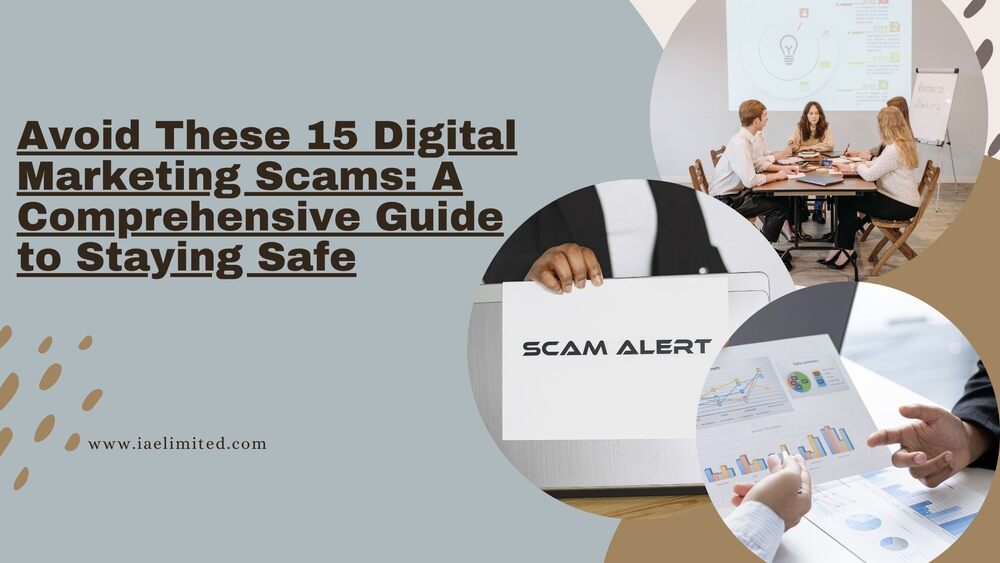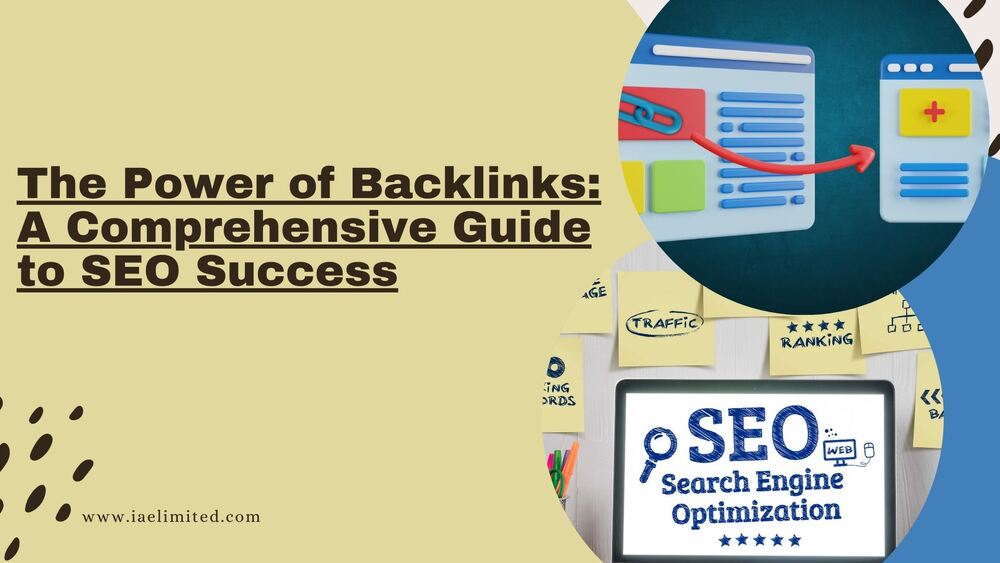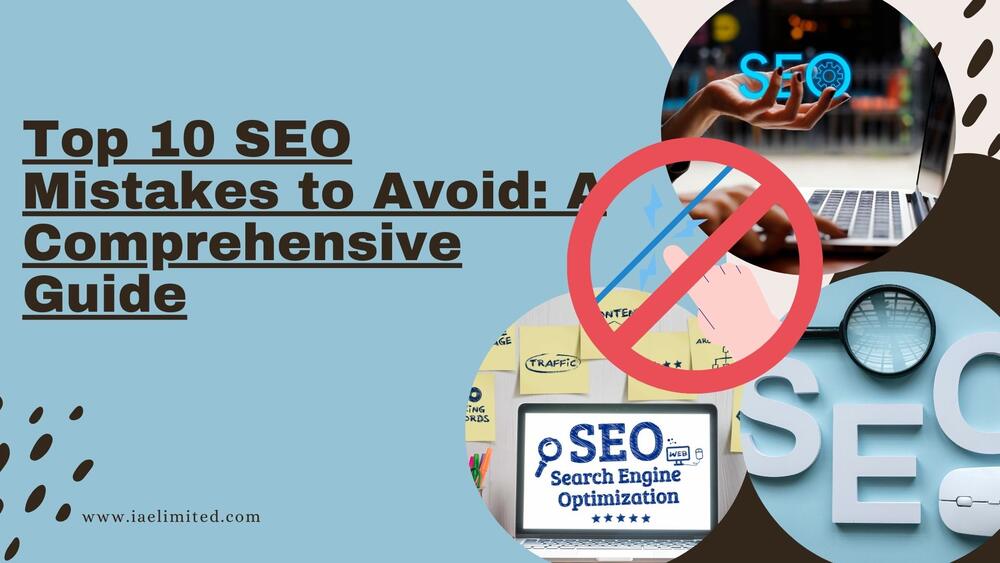Avoid These 15 Digital Marketing Scams: A Comprehensive Guide to Staying Safe

Digital marketing has become an essential tool for businesses looking to reach a wider audience and drive more conversions. However, with its growth, there’s also been an increase in digital marketing scams that target both newcomers and seasoned marketers alike.
Falling victim to these scams can lead to financial loss, data breaches, and damaged reputations. In this article, we’ll explore 15 common digital marketing scams and provide you with actionable tips to avoid them.
What Are Digital Marketing Scams?
Table of Contents
Digital marketing scams involve fraudulent activities or misleading practices that prey on businesses and individuals seeking to grow their online presence.
Scammers often promise quick wins, like guaranteed traffic or overnight success, to lure their victims. Understanding the various types of scams and how to identify them is crucial for protecting your business from financial and reputational harm.
Fake SEO Services
Understanding Fake SEO Scams
SEO (Search Engine Optimization) is a critical part of any digital marketing strategy. However, some fraudulent SEO services promise “guaranteed #1 ranking on Google” or quick SEO results without any genuine expertise.
These services often use black-hat techniques that can hurt your site in the long run, leading to penalties from search engines.
How to Spot and Avoid Fake SEO Services
Legitimate SEO takes time. Be wary of any company promising instant results. Look for transparent strategies, long-term contracts, and verified case studies before choosing an SEO provider.
Additionally, check online reviews and seek out recommendations from trusted sources to avoid falling for these scams.
Paid Social Media Followers Scam
The Appeal of Buying Followers
Many businesses want to boost their social media presence quickly, and buying followers might seem like a shortcut. However, these followers are often bots or inactive accounts, providing no real engagement or value.
How to Identify Legitimate Audience Growth Techniques
Instead of buying followers, focus on organic strategies such as running targeted ads or engaging with your audience through meaningful content. Social media growth should be authentic, even if it takes time. Platforms like Facebook and Instagram offer tools to promote posts and build a real audience.
Email Phishing Scams in Digital Marketing
How Phishing Scams Target Marketers
Phishing scams are designed to trick marketers into sharing sensitive information, like login credentials or credit card details, through fake emails. These emails often mimic well-known brands or services, creating a sense of urgency that prompts quick action.
Steps to Safeguard Against Phishing Attacks
Be cautious with unsolicited emails and always verify the sender’s email address. Use tools like spam filters and email verification services. Multi-factor authentication (MFA) adds an extra layer of protection to your accounts.
Fake Influencer Collaborations
The Rise of Fake Influencers
Influencer marketing has become a popular way for brands to reach new audiences. However, scammers have started creating fake influencer accounts with inflated follower counts to lure businesses into paying for ineffective campaigns. These fake influencers may use bot accounts or engage in fraud, delivering little to no real engagement.
Tips to Verify Authentic Influencers
Before partnering with an influencer, use tools like SocialBlade or HypeAuditor to verify their engagement rate and audience authenticity. Ask for media kits and real-life examples of previous collaborations. Authentic influencers will have a consistent, engaged following.
PPC Ad Fraud (Pay-Per-Click Scams)
How PPC Fraud Works
PPC fraud occurs when fraudulent clicks are made on your ads to waste your advertising budget. This can be done through bots or click farms, which inflate click numbers but lead to no conversions.
How to Prevent PPC Ad Fraud
Use analytics tools such as Google Ads to monitor unusual click activity. Implement IP exclusions and work with PPC fraud detection software to filter out invalid traffic.
Fake Reviews and Testimonials
The Importance of Authentic Reviews
Reviews are a powerful marketing tool. Unfortunately, some companies resort to fake reviews to build a deceptive reputation. Scammers create false testimonials, which can mislead consumers and damage trust in a brand.
How to Ensure Your Reviews Are Genuine
To ensure authenticity, encourage real customers to leave reviews and consider using third-party platforms like Trustpilot, where reviews are vetted for legitimacy. You can also flag suspicious reviews for further investigation.
Affiliate Marketing Fraud
How Affiliate Scams Operate
In affiliate marketing fraud, scammers use techniques such as cookie stuffing or generating fake leads to earn illegitimate commissions. This not only harms your bottom line but also damages your reputation with legitimate affiliates.
How to Protect Your Affiliate Program
To safeguard your affiliate program, use software to track and verify legitimate leads. Implement strict policies that outline acceptable practices for affiliates and conduct regular audits to catch fraudulent behavior early.
Data Harvesting Schemes
How Scammers Steal Data from Marketers
Data harvesting scams involve tricking marketers into sharing valuable information through fake landing pages, forms, or surveys. Once obtained, this data is often sold on the dark web or used for malicious purposes.
Best Practices for Data Protection
Ensure your landing pages are secure by using HTTPS encryption. Additionally, only request necessary information from your customers and ensure that their data is stored securely. A solid privacy policy can help reinforce trust.
Fake Digital Marketing Agencies
Spotting a Fake Marketing Agency
Fake agencies promise extraordinary results at too-good-to-be-true prices. They may lack real expertise and provide little transparency in their operations. These agencies often fail to deliver any measurable ROI.
How to Choose a Trustworthy Agency
Research any agency before committing to a contract. Ask for references, read reviews, and ensure the agency has a track record of success. You can also verify their credentials through industry certifications and awards.
Social Media Account Hijacking
How Social Media Accounts Are Hacked
Hijacking occurs when scammers gain control of your social media accounts, often through weak passwords or phishing attacks. Once hijacked, scammers may post damaging content or demand a ransom.
How to Protect Your Accounts
Use strong, unique passwords for each account and enable multi-factor authentication. Regularly monitor your accounts for unusual activity, and act quickly if you suspect a breach.
Content Plagiarism and Theft
How Plagiarism Scams Impact Marketers
Plagiarism scams involve stealing original content, passing it off as someone else’s work, or using it for unauthorized purposes. This not only impacts your SEO but can also lead to legal consequences.
How to Protect Your Content from Theft
Use tools like Copyscape to detect instances of content theft. Additionally, watermarking original graphics and submitting a DMCA takedown request can help protect your intellectual property.
Fake Domain and Website Hosting Offers
How Fake Hosting Scams Work
Scammers often lure unsuspecting website owners with too-good-to-be-true hosting deals, which can lead to data loss, downtime, and even security breaches.
How to Choose a Reliable Hosting Provider
Always choose a hosting provider with a good reputation. Look for verified customer reviews, uptime guarantees, and reliable customer support. Beware of hosts offering overly cheap plans without a proven track record.
You can checkout this article on, steckinsights.com on How to avoid hosting & domain name scams.
Malvertising (Malicious Ads)
Understanding Malvertising
Malvertising occurs when ads are infected with malware that can harm your visitors or compromise their data. These ads may appear on legitimate websites, making them difficult to spot.
Protecting Yourself from Malvertising
Use ad-blocking software and regularly update your website’s security measures. If you run ads, ensure you’re working with a reputable ad network that takes security seriously.
Fake Webinar and Course Scams
How Scammers Exploit the Demand for Digital Education
With the growing demand for digital learning, scammers are creating fake webinars and courses. These often promise insider knowledge but fail to deliver anything of value.
How to Identify Legitimate Online Learning Opportunities
When considering a course or webinar, check the credibility of the creators. Look for verified testimonials, accreditation, and transparency about the course content before enrolling.
Cryptocurrency and NFT Marketing Scams
The Intersection of Digital Marketing and Crypto Scams
As cryptocurrency and NFTs gain popularity, scammers have found new ways to exploit marketers. They often promise high returns with little risk, leading marketers into dubious investments.
Staying Safe in the Crypto Marketing Space
Always research any cryptocurrency or NFT project before investing. Trustworthy projects have transparent teams, well-documented roadmaps, and community engagement. Use trusted platforms to avoid falling for scams.
In Conclusion
Digital marketing scams are on the rise, and they target businesses of all sizes. The best way to protect yourself is by staying informed, using reliable tools, and being cautious when an offer seems too good to be true.
Whether it’s fake SEO services, influencer fraud, or phishing emails, vigilance is your first line of defense. Educate your team, invest in security, and stay one step ahead of scammers.
FAQs

What are the most common digital marketing scams? Some of the most common scams include fake SEO services, phishing emails, fake influencer collaborations, and PPC ad fraud.
How can I avoid falling victim to a digital marketing scam? Always do your research before working with any marketing service. Look for verified reviews, industry certifications, and transparency in the service being offered.
What should I do if I think I’ve been scammed? If you suspect fraud, report the incident to relevant authorities, such as your local consumer protection agency or law enforcement. Additionally, inform your financial institution if any payments were made.
Are there legal protections for digital marketers against scams? Yes, there are legal protections, but they vary by region. In many cases, digital marketers can pursue legal action for fraud, breach of contract, or intellectual property theft.
How can I report a digital marketing scam? You can report scams to platforms such as the Federal Trade Commission (FTC) or local cybercrime units. Many websites also have dedicated channels for reporting scams.
By staying informed, practicing caution, and using legitimate resources, you can protect yourself from the growing threat of digital marketing scams. In case you missed it, we recently published a post on, Best Practices for B2B Social Media Advertising: A Comprehensive Guide.





